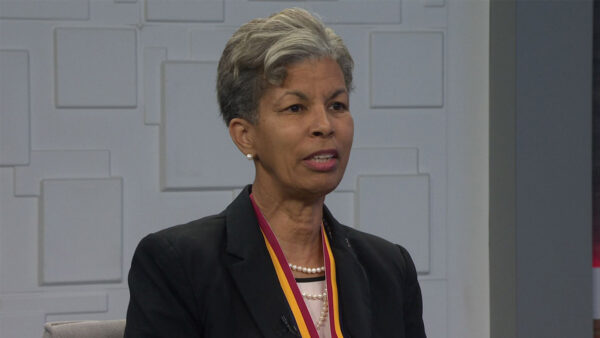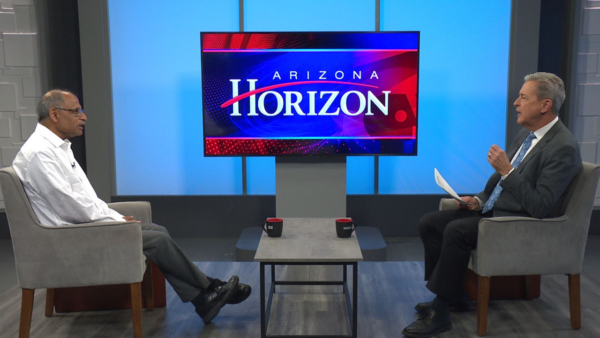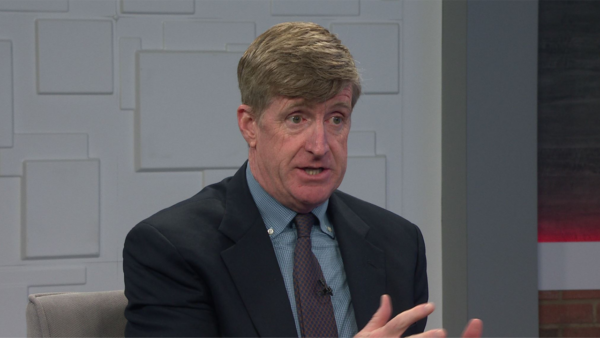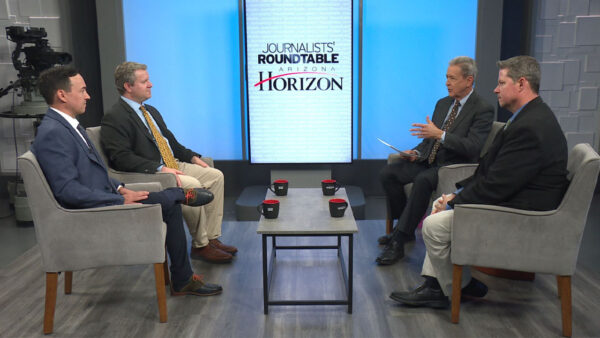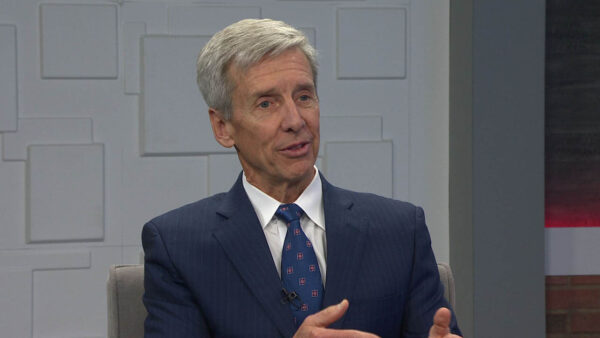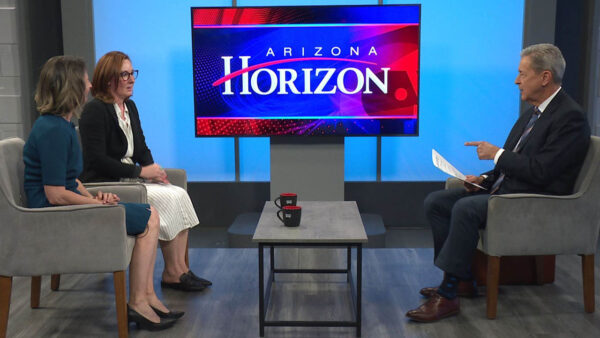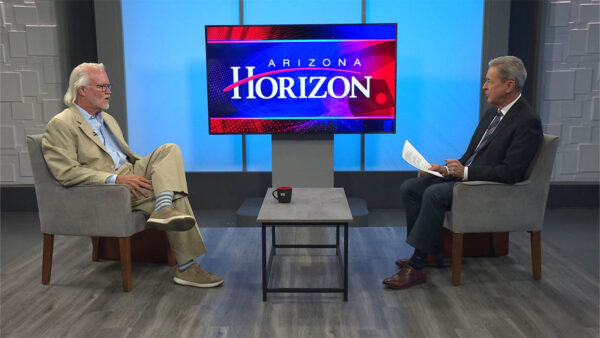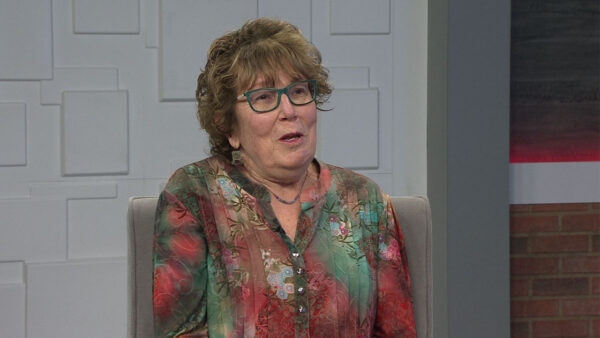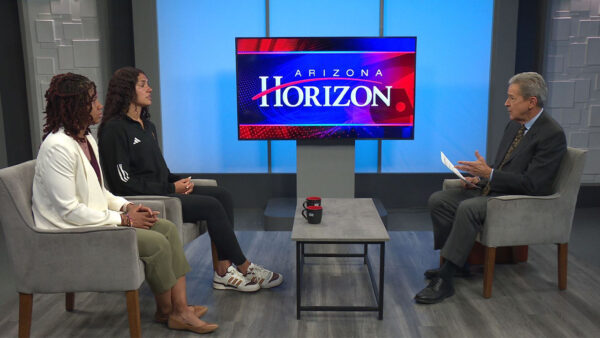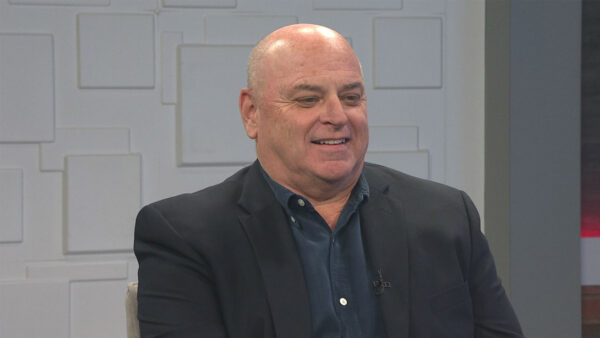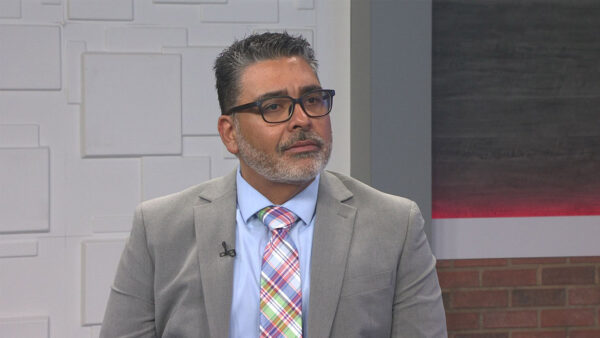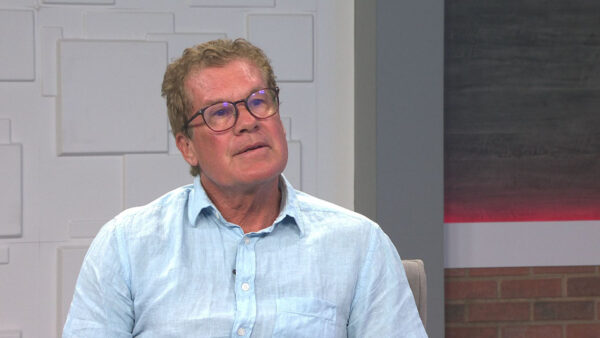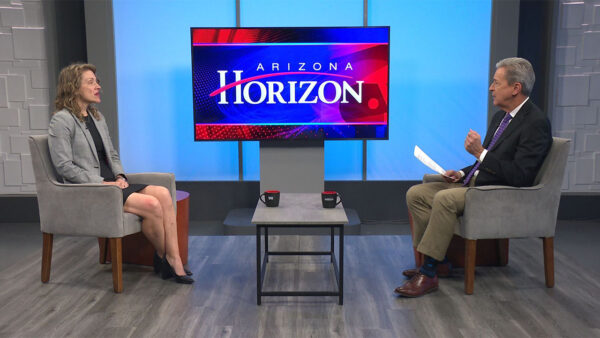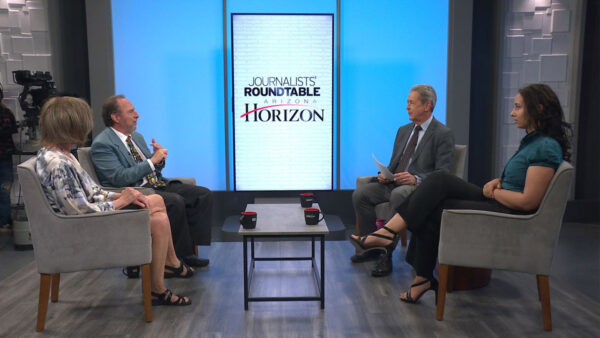state lawmakers are considering a measure that would allow voters to decide whether lawmakers can make changes to voter-approved initiatives. State Representative Russell Pearce, who is sponsoring the bill, will discuss it, along with Representative Chad Campbell, who is against the bill.
Ted Simons:
Hello and welcome to Horizon, I'm Ted Simons. The house passed a bill that would put on the ballot a measure to give lawmakers more power over voter-approved initiatives. Right now it takes three fourths of the legislature to make substantial changes to any voter-approved measures, thanks to the voter protection act passed in 1998 in Arizona. That means that during tough budget times, it's almost impossible for the legislature to reduce spending on voter-mandated programs. House concurrent resolution 20-44 would change that, if approved by voters. Here to talk about the resolution is its sponsor, Representative Russell Pearce. Also here is representative Chad Campbell, who is against the measure.
Ted Simons:
Thank you both for joining us here on Horizon. Russell, your bill, what do you want to see changed?
Russell Pearce:
It's really not a change. It's returning some opportunity to deal with -- we have a $1.2 billion deficit for '08 that ends in June 30th. We have a $2 billion deficit that starts July 1st. So we have over $3 billion in deficit. That's not enough money to take care of what's in line to be spent. You know, and what we have is only a third of the budget that we can deal. With what I'm proposing is the ability in bad times, when the governor's office agrees, O.S.B. Her budget office and legislative budget office, if they agree that we have an insufficient amount of revenue to pay our bills, then we'll put the entire budget on the table and make tough choices. New Jersey just did. This most liberal governor in the nation, Governor Corzine. He says they have been reckless in spending, spent 7% while their revenue increase has only been 3%. For 20 years they've bonded against Medicare, against pension, they've destroyed the ability to take care of the people's business without huge increases to taxes. He recognizes it. How come he gets it and we don't?
Ted Simons:
Chad, if the governor's office and lawmakers agree that there are things that can be modified during tough budget times, should they be looked at?
Chad Campbell:
Not with this package, no, Ted. I disagree with that. This is simply going after prop 105. You mentioned in the opening comments voters passed prop 105 in 1998 for a reason. That was to protect the voter initiatives they worked so hard to pass and that they obviously support because they're voting at the ballot on these measures. Further more in 2004 we passed proposition 101, which really at least in my eyes addressed this problem. Moving forward from 2004, you can no longer pass an initiative and say give us money from the general fund. You now have to find your own funding source if you want to pass an initiative. That money is not part of the general fund and it's not our right as legislature to go in and steal people's money that they worked on to pass their initiative and the people have supported.
Ted Simons:
Real quickly, why shouldn't some of these -- these are initiatives and they're voter-approved and we all realize that. Why shouldn't they share in cuts during troubled times?
Chad Campbell:
Again, Ted, because their money was not intended for general fund use. And the voters are saying this is a priority for them. If the voters want to pass a children's health care plan then we should protect that voter intent. That is our job.
Ted Simons:
Russell, it sounds like what you're suggesting here is subverting the will of the people. They're saying x and you're waiting wait.
Russell Pearce:
This goes with the will of the people. If we plan a trip and we can afford it, finances change and we can no longer afford it we ought to rethink that. This makes the people recognize this was a well-intended initiative. There's only one that falls outside -- none of the others have found additional funds. They simply impact the general fund like access. It has grown by over $1 billion since 2003, over 1 billion. One out of five people. There's places to trim. The point is this goes before the people. It's not subverting anything it. Goes before the same people who made the other choice. A review of what they did and said, but in these cases, we're not limiting to 105 we're saying in bad times when you don't have enough money to pay your bills, why should we borrow like the governor said $2.3 billion for our children, sweep funds. He talks about stealing funds? We've got 300 million the governor has recommended we take from other funds. This goes on and on and on. We're going to bond for schools, sweep money, bond for construction. It goes on and on.
Ted Simons:
All that aside, what you're basically saying is that voters in 1998 and the other part that Chad mentioned they had said, we want our voice heard and we want our voices left alone.
Russell Pearce:
They didn't say that. They said that if all things are well. It's just like you and I. We plan something with our money. We have a right to live with that money. But things change. You order cable TV, you want digital, high resolution and all of a sudden you can't afford to pay for it, maybe you need to rethink and back up. This is the vote of the voters.
Ted Simons:
The argument, things change.
Chad Campbell:
Things do change. But the will of the voters doesn't change. They have spoken several times on this issue. In 1998 the first time in 2004 the second time. And I don't remember seeing any clauses there where they said if things are good we want this to happen. There was never a clause in the initiative at least where I can remember where the voters said that. Again I want to point out that this is not our money. This is the money that voters have said it's for this purpose or this purpose. We have to protect the intent of the voters. That is what we're here for. At least in my eyes that is a priority for the legislature. The voters say they want a program, then it is our responsibility to protect that program and make sure the funding is going there. I also want to address something that Russell said and that is the fact that we can solve the budget crisis by going after this initiative, this money that's tide up in the initiative. This is something we've talked about in the legislature and outside the legislature for years. Most of the funding that's tied up that is off limit to us is either federally man date spending or form you laic driven funding. Education spending is a great example of that. It's not programs tieing our hands now. It's mandated funding like through federal funding. It doesn't come through the initiative process.
Ted Simons:
Is your bill mixing mandates here? It sounds as though the voter initiatives that have passed aren't necessarily the biggest problem.
Russell Pearce:
No. You have two-thirds of the budget that is off the table because the voter initiative and entitlement programs. They all belong on the table. What's protected is the department of corrections, public safety. Those are the programs that will be hard to skip when you have no other place to go. Or he talks about taking money. We're taking $300 million from funds that are not federal funds that are fund from other programs. And those people don't have a right to say this we're putting back to the voters. They can decide. You're right. This is their government. I believe that. What I don't want is taxes, bonding, debt. Leaving the debt for our children and grandchildren because we don't have the courage or the guts to do what's right and that's stop reckless spending. We've grown 14.5%, the real growth 3 to 4%. That's reckless.
Ted Simons:
I want Chad to respond to that.
Chad Campbell:
I keep hearing bonding. I want to point out we are the only state in the country that doesn't bond for school construction right now. I'm not sure if the other 48 states are wrong and we're right. But I'm betting we're the ones on the wrong side had here. I want to point out. This is very important. These short-sighted and for lack of a better word schemes are not going to solve our problems. We have to invest in our future in the proper way attracting businesses here, making the infrastructure here, making sure our economy is diverse and strong enough to survive both the good times and bad times. We get through both of those and that's how we solve this problem. Not going after the voters.
Ted Simons:
I got to stop you right there, it's amazing how the voter initiative got to bonding. Everything comes back to bonding.
Ted Simons:
All right. Thank you both for joining us here on Horizon. Appreciate it.
Russell Pearce:State Representative;Chad Campbell:State Representative;





